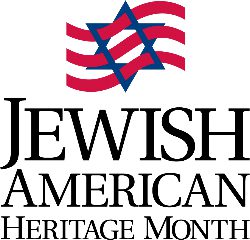 “Justice, justice shalt thou pursue” is a strand that ties together all Jews in the law.
“Justice, justice shalt thou pursue” is a strand that ties together all Jews in the law.
To honor the service of all those Floridian Jews who have devoted their professional lives to the public to sustain the rule of law, the kickoff for Florida Jewish History Month in January will feature “Florida Jews in Justice.” This free program will take place on Sunday, Jan. 9, 10:30 a.m., at the Jewish Museum of Florida, 301 Washington Ave. in Miami Beach.
Gerald Kogan, former Chief Justice of the Florida Supreme Court, will moderate a panel discussion that includes Arthur England, former Chief Justice of the Florida Supreme Court; Irving “Red” Heller, retired assistant director Miami-Dade Police Department and a founder of the Shomrim Society, and Karen Gilbert, Assistant U.S. Attorney, Department of Justice, Southern District of Florida.
The people of the book were drawn to the legal profession as soon as occupational restrictions were lifted in the countries in which they lived. In the U.S., law became a bulwark against the kinds of oppression Jews had endured in many lands for countless generations. The rule of law has allowed Jews and all minorities to help shape national and state history. Law remains an avenue of social mobility in society and the best Jewish lawyers and judges have worked to secure justice for others.
Eight Jews have served on the Supreme Court of the U.S.
Louis Brandeis (1916) was the first, although Judah P. Benjamin rejected the offer in 1853 when he chose to retain his Senate seat. Benjamin Cardozo, Felix Frankfurter, Arthur J. Goldberg, who once said that his concern for justice stems from his heritage, and Abe Fortas served in the past.
In 1993 as the 107th Justice, Ruth Bader Ginsburg said, “I am proud of being a Jew. The demand for justice runs through the entirety of the Jewish tradition.”
In 1994, Stephen G. Breyer joined the Court. And this year, Elena Kagan became the third Jew to serve currently on the U.S. Supreme Court.
Perhaps you know that at least 270 Jews have served as judges in Florida. The museum keeps scrapbooks about Floridian Jews who have served in public office. One set is for judges.
The earliest known Jewish judge in Florida was Gus Cohen who was a federal judge in Pensacola from 1884 to 1914. Cohen settled there before the Civil War and was the grandfather of Frances Cohen who married Mitchell Wolfson in Miami in 1926.
The earliest known Circuit Court Judge was Harry Sandler in Tampa, 1935-1964. While in the Legislature (1932-35), he sponsored the Homestead Exemption Amendment. A.O. Kanner served as first chief judge of the Second Court of Appeal in 1957. There is a highway named for him in Martin County.
Florida has had four Jewish Chief Judges of the Supreme Court: Arthur England of Miami (1978-80); Ray Ehrlich of Jacksonville (1988-90); Gerald Kogan of Miami (1996-98), and Barbara Pariente (2004-06), who is currently serving on the court.
The concept for Florida Jewish History Month (FJHM) began at the Jewish Museum of Florida. Marcia Jo Zerivitz, the museum’s founding executive director and chief curator, worked closely with legislators to translate the museum’s mission into a statewide observance.
Although Florida was discovered in 1513, Jews and any people other than Catholics have been allowed to live in the state only since 1763 when Florida was taken from the Spanish and turned over to the British in the Treaty of Paris following the French and Indian War.
The first Jews settled in Pensacola in 1763 and bought property to begin businesses. David Levy Yulee, a Jew, brought Florida into statehood in 1845, served as its first U.S. senator and was the first person of Jewish ancestry to serve in the U.S. Congress.
Organizations interested in having a guest speaker for Florida Jewish History Month should contact the museum at 305-672-5044, ext. 3180.







Comments are closed.